afterLoad (456.31KB) (503μs)
afterInitialise (1.27MB) (44.45ms)
afterRoute (870.39KB) (27.51ms)
beforeRenderComponent com_tags (20.38KB) (246μs)
afterRenderComponent com_tags (1.53MB) (131ms)
afterDispatch (27.72KB) (2.96ms)
beforeRenderRawModule mod_articles_category (READ MORE...) (388.12KB) (13.8ms)
Before Access::preloadComponents (all components) (56.7KB) (453μs)
After Access::preloadComponents (all components) (103.05KB) (2ms)
Before Access::getAssetRules (id:8 name:com_content) (840B) (19μs)
After Access::getAssetRules (id:8 name:com_content) (7.05KB) (39μs)
afterRenderRawModule mod_articles_category (READ MORE...) (5.08KB) (159ms)
beforeRenderRawModule mod_tags_popular (Search) (4.81KB) (28μs)
afterRenderRawModule mod_tags_popular (Search) (2.79KB) (91.09ms)
beforeRenderRawModule mod_custom (Remember to download Heart Healthy Seniors) (816B) (31μs)
afterRenderRawModule mod_custom (Remember to download Heart Healthy Seniors) (4.86KB) (496μs)
beforeRenderRawModule mod_custom (Get additionel and more detailed knowledge ) (752B) (18μs)
afterRenderRawModule mod_custom (Get additionel and more detailed knowledge ) (1.67KB) (32μs)
beforeRenderRawModule mod_custom (BOOST YOUR IMMUNE DEFENSE) (608B) (11μs)
afterRenderRawModule mod_custom (BOOST YOUR IMMUNE DEFENSE) (928B) (23μs)
beforeRenderRawModule mod_custom (Are you taking supplements) (736B) (9μs)
afterRenderRawModule mod_custom (Are you taking supplements) (1.03KB) (28μs)
beforeRenderRawModule mod_custom (Antiaging) (720B) (9μs)
afterRenderRawModule mod_custom (Antiaging) (1.02KB) (20μs)
beforeRenderRawModule mod_custom (Exercise) (720B) (9μs)
afterRenderRawModule mod_custom (Exercise) (1.02KB) (17μs)
beforeRenderRawModule mod_custom (Check this before you buy a Q10 product) (752B) (9μs)
afterRenderRawModule mod_custom (Check this before you buy a Q10 product) (944B) (19μs)
beforeRenderRawModule mod_custom (Chronic fatigue tied Alan to his bed but Q10 capsules saved him:) (245.53KB) (4.04ms)
afterRenderRawModule mod_custom (Chronic fatigue tied Alan to his bed but Q10 capsules saved him:) (960B) (44μs)
beforeRenderModule mod_custom (Chronic fatigue tied Alan to his bed but Q10 capsules saved him:) (768B) (5μs)
afterRenderModule mod_custom (Chronic fatigue tied Alan to his bed but Q10 capsules saved him:) (1.3KB) (1.07ms)
beforeRenderRawModule mod_custom (Cholesterol-lowering without side effects:) (368B) (15μs)
afterRenderRawModule mod_custom (Cholesterol-lowering without side effects:) (2.19KB) (30μs)
beforeRenderModule mod_custom (Cholesterol-lowering without side effects:) (752B) (3μs)
afterRenderModule mod_custom (Cholesterol-lowering without side effects:) (1.28KB) (33μs)
beforeRenderModule mod_articles_category (READ MORE...) (21.32KB) (363μs)
afterRenderModule mod_articles_category (READ MORE...) (1.25KB) (37μs)
beforeRenderModule mod_tags_popular (Search) (5.17KB) (14μs)
afterRenderModule mod_tags_popular (Search) (1.27KB) (24μs)
beforeRenderModule mod_custom (Remember to download Heart Healthy Seniors) (1.17KB) (11μs)
afterRenderModule mod_custom (Remember to download Heart Healthy Seniors) (1.3KB) (21μs)
beforeRenderModule mod_custom (Get additionel and more detailed knowledge ) (368B) (10μs)
afterRenderModule mod_custom (Get additionel and more detailed knowledge ) (1.3KB) (21μs)
beforeRenderModule mod_custom (BOOST YOUR IMMUNE DEFENSE) (224B) (9μs)
afterRenderModule mod_custom (BOOST YOUR IMMUNE DEFENSE) (1.28KB) (19μs)
beforeRenderModule mod_custom (Are you taking supplements) (352B) (9μs)
afterRenderModule mod_custom (Are you taking supplements) (1.28KB) (20μs)
beforeRenderModule mod_custom (Antiaging) (336B) (8μs)
afterRenderModule mod_custom (Antiaging) (1.27KB) (20μs)
beforeRenderModule mod_custom (Exercise) (336B) (9μs)
afterRenderModule mod_custom (Exercise) (1.25KB) (20μs)
beforeRenderModule mod_custom (Check this before you buy a Q10 product) (352B) (8μs)
afterRenderModule mod_custom (Check this before you buy a Q10 product) (1.28KB) (20μs)
beforeRenderRawModule mod_menu (Main menu-US) (20.94KB) (1.67ms)
afterRenderRawModule mod_menu (Main menu-US) (152.66KB) (2.83ms)
beforeRenderModule mod_menu (Main menu-US) (720B) (5μs)
afterRenderModule mod_menu (Main menu-US) (4.36KB) (60μs)
beforeRenderRawModule mod_languages (Sprogskift) (3.44KB) (19μs)
afterRenderRawModule mod_languages (Sprogskift) (26.8KB) (2.35ms)
beforeRenderModule mod_languages (Sprogskift) (720B) (5μs)
afterRenderModule mod_languages (Sprogskift) (5.31KB) (22μs)
beforeRenderRawModule mod_finder () (6.34KB) (11μs)
afterRenderRawModule mod_finder () (214.16KB) (6.5ms)
beforeRenderModule mod_finder () (704B) (4μs)
afterRenderModule mod_finder () (5.79KB) (35μs)
beforeRenderRawModule mod_custom () (6.62KB) (141μs)
afterRenderRawModule mod_custom () (22.66KB) (1.73ms)
beforeRenderModule mod_custom () (704B) (6μs)
afterRenderModule mod_custom () (1.23KB) (49μs)
beforeRenderRawModule mod_menu (Main menu-US) (5.07KB) (104μs)
afterRenderRawModule mod_menu (Main menu-US) (5.8KB) (678μs)
beforeRenderModule mod_menu (Main menu-US) (720B) (4μs)
afterRenderModule mod_menu (Main menu-US) (1.25KB) (1.1ms)
beforeRenderRawModule mod_languages (Sprogskift Mobil) (912B) (25μs)
afterRenderRawModule mod_languages (Sprogskift Mobil) (3.89KB) (833μs)
beforeRenderModule mod_languages (Sprogskift Mobil) (720B) (4μs)
afterRenderModule mod_languages (Sprogskift Mobil) (1.27KB) (33μs)
beforeRenderRawModule mod_finder () (2.3KB) (10μs)
afterRenderRawModule mod_finder () (6.29KB) (5.56ms)
beforeRenderModule mod_finder () (704B) (5μs)
afterRenderModule mod_finder () (1.23KB) (49μs)
beforeRenderRawModule mod_custom () (8.66KB) (268μs)
afterRenderRawModule mod_custom () (904B) (149μs)
beforeRenderModule mod_custom () (704B) (3μs)
afterRenderModule mod_custom () (2.43KB) (28μs)
beforeRenderRawModule mod_custom () (688B) (87μs)
afterRenderRawModule mod_custom () (896B) (108μs)
beforeRenderModule mod_custom () (704B) (2μs)
afterRenderModule mod_custom () (2.71KB) (23μs)
afterRender (297.71KB) (34.31ms)
| 1 x afterRenderRawModule mod_articles_category (READ MORE...) (5.08KB) (29.28%) | 159.05ms |
| 1 x afterRenderComponent com_tags (1.53MB) (24.11%) | 130.97ms |
| 1 x afterRenderRawModule mod_tags_popular (Search) (2.79KB) (16.77%) | 91.09ms |
| 1 x afterInitialise (1.27MB) (8.18%) | 44.45ms |
| 1 x afterRender (297.71KB) (6.32%) | 34.31ms |
| 1 x afterRoute (870.39KB) (5.07%) | 27.51ms |
| 1 x beforeRenderRawModule mod_articles_category (READ MORE...) (388.12KB) (2.54%) | 13.80ms |
| 1 x afterRenderRawModule mod_finder () (214.16KB) (1.2%) | 6.50ms |
| 1 x afterRenderRawModule mod_finder () (6.29KB) (1.02%) | 5.56ms |
| 1 x beforeRenderRawModule mod_custom (Chronic fatigue tied Alan to his bed but Q10 capsules saved him:) (245.53KB) (0.74%) | 4.04ms |
| 1 x afterDispatch (27.72KB) (0.55%) | 2.96ms |
| 1 x afterRenderRawModule mod_menu (Main menu-US) (152.66KB) (0.52%) | 2.83ms |
| 1 x afterRenderRawModule mod_languages (Sprogskift) (26.8KB) (0.43%) | 2.35ms |
| 1 x After Access::preloadComponents (all components) (103.05KB) (0.37%) | 2.00ms |
| 1 x afterRenderRawModule mod_custom () (22.66KB) (0.32%) | 1.73ms |
| 1 x beforeRenderRawModule mod_menu (Main menu-US) (20.94KB) (0.31%) | 1.67ms |
| 1 x afterRenderModule mod_menu (Main menu-US) (1.25KB) (0.2%) | 1.10ms |
| 1 x afterRenderModule mod_custom (Chronic fatigue tied Alan to his bed but Q10 capsules saved him:) (1.3KB) (0.2%) | 1.07ms |
| 1 x afterRenderRawModule mod_languages (Sprogskift Mobil) (3.89KB) (0.15%) | 833μs |
| 1 x afterRenderRawModule mod_menu (Main menu-US) (5.8KB) (0.12%) | 678μs |
| 1 x afterLoad (456.31KB) (0.09%) | 503μs |
| 1 x afterRenderRawModule mod_custom (Remember to download Heart Healthy Seniors) (4.86KB) (0.09%) | 496μs |
| 1 x Before Access::preloadComponents (all components) (56.7KB) (0.08%) | 453μs |
| 1 x beforeRenderModule mod_articles_category (READ MORE...) (21.32KB) (0.07%) | 363μs |
| 1 x beforeRenderRawModule mod_custom () (8.66KB) (0.05%) | 268μs |
| 1 x beforeRenderComponent com_tags (20.38KB) (0.05%) | 246μs |
| 1 x afterRenderRawModule mod_custom () (904B) (0.03%) | 149μs |
| 1 x beforeRenderRawModule mod_custom () (6.62KB) (0.03%) | 141μs |
| 1 x afterRenderRawModule mod_custom () (896B) (0.02%) | 108μs |
| 1 x beforeRenderRawModule mod_menu (Main menu-US) (5.07KB) (0.02%) | 104μs |
| 1 x beforeRenderRawModule mod_custom () (688B) (0.02%) | 87μs |
| 1 x afterRenderModule mod_menu (Main menu-US) (4.36KB) (0.01%) | 60μs |
| 1 x afterRenderModule mod_custom () (1.23KB) (0.01%) | 49μs |
| 1 x afterRenderModule mod_finder () (1.23KB) (0.01%) | 49μs |
| 1 x afterRenderRawModule mod_custom (Chronic fatigue tied Alan to his bed but Q10 capsules saved him:) (960B) (0.01%) | 44μs |
| 1 x After Access::getAssetRules (id:8 name:com_content) (7.05KB) (0.01%) | 39μs |
| 1 x afterRenderModule mod_articles_category (READ MORE...) (1.25KB) (0.01%) | 37μs |
| 1 x afterRenderModule mod_finder () (5.79KB) (0.01%) | 35μs |
| 1 x afterRenderModule mod_languages (Sprogskift Mobil) (1.27KB) (0.01%) | 33μs |
| 1 x afterRenderModule mod_custom (Cholesterol-lowering without side effects:) (1.28KB) (0.01%) | 33μs |
| 1 x afterRenderRawModule mod_custom (Get additionel and more detailed knowledge ) (1.67KB) (0.01%) | 32μs |
| 1 x beforeRenderRawModule mod_custom (Remember to download Heart Healthy Seniors) (816B) (0.01%) | 31μs |
| 1 x afterRenderRawModule mod_custom (Cholesterol-lowering without side effects:) (2.19KB) (0.01%) | 30μs |
| 1 x beforeRenderRawModule mod_tags_popular (Search) (4.81KB) (0.01%) | 28μs |
| 1 x afterRenderModule mod_custom () (2.43KB) (0.01%) | 28μs |
| 1 x afterRenderRawModule mod_custom (Are you taking supplements) (1.03KB) (0.01%) | 28μs |
| 1 x beforeRenderRawModule mod_languages (Sprogskift Mobil) (912B) (0%) | 25μs |
| 1 x afterRenderModule mod_tags_popular (Search) (1.27KB) (0%) | 24μs |
| 1 x afterRenderRawModule mod_custom (BOOST YOUR IMMUNE DEFENSE) (928B) (0%) | 23μs |
| 1 x afterRenderModule mod_custom () (2.71KB) (0%) | 23μs |
| 1 x afterRenderModule mod_languages (Sprogskift) (5.31KB) (0%) | 22μs |
| 1 x afterRenderModule mod_custom (Remember to download Heart Healthy Seniors) (1.3KB) (0%) | 21μs |
| 1 x afterRenderModule mod_custom (Get additionel and more detailed knowledge ) (1.3KB) (0%) | 21μs |
| 1 x afterRenderRawModule mod_custom (Antiaging) (1.02KB) (0%) | 20μs |
| 1 x afterRenderModule mod_custom (Are you taking supplements) (1.28KB) (0%) | 20μs |
| 1 x afterRenderModule mod_custom (Antiaging) (1.27KB) (0%) | 20μs |
| 1 x afterRenderModule mod_custom (Exercise) (1.25KB) (0%) | 20μs |
| 1 x afterRenderModule mod_custom (Check this before you buy a Q10 product) (1.28KB) (0%) | 20μs |
| 1 x Before Access::getAssetRules (id:8 name:com_content) (840B) (0%) | 19μs |
| 1 x afterRenderModule mod_custom (BOOST YOUR IMMUNE DEFENSE) (1.28KB) (0%) | 19μs |
| 1 x beforeRenderRawModule mod_languages (Sprogskift) (3.44KB) (0%) | 19μs |
| 1 x afterRenderRawModule mod_custom (Check this before you buy a Q10 product) (944B) (0%) | 19μs |
| 1 x beforeRenderRawModule mod_custom (Get additionel and more detailed knowledge ) (752B) (0%) | 18μs |
| 1 x afterRenderRawModule mod_custom (Exercise) (1.02KB) (0%) | 17μs |
| 1 x beforeRenderRawModule mod_custom (Cholesterol-lowering without side effects:) (368B) (0%) | 15μs |
| 1 x beforeRenderModule mod_tags_popular (Search) (5.17KB) (0%) | 14μs |
| 1 x beforeRenderRawModule mod_custom (BOOST YOUR IMMUNE DEFENSE) (608B) (0%) | 11μs |
| 1 x beforeRenderModule mod_custom (Remember to download Heart Healthy Seniors) (1.17KB) (0%) | 11μs |
| 1 x beforeRenderRawModule mod_finder () (6.34KB) (0%) | 11μs |
| 3 x beforeRenderModule mod_custom () (704B) (0%) | 11μs |
| 1 x beforeRenderModule mod_custom (Get additionel and more detailed knowledge ) (368B) (0%) | 10μs |
| 1 x beforeRenderRawModule mod_finder () (2.3KB) (0%) | 10μs |
| 1 x beforeRenderRawModule mod_custom (Are you taking supplements) (736B) (0%) | 9μs |
| 1 x beforeRenderRawModule mod_custom (Antiaging) (720B) (0%) | 9μs |
| 1 x beforeRenderRawModule mod_custom (Exercise) (720B) (0%) | 9μs |
| 1 x beforeRenderRawModule mod_custom (Check this before you buy a Q10 product) (752B) (0%) | 9μs |
| 1 x beforeRenderModule mod_custom (Are you taking supplements) (352B) (0%) | 9μs |
| 1 x beforeRenderModule mod_custom (Exercise) (336B) (0%) | 9μs |
| 2 x beforeRenderModule mod_menu (Main menu-US) (720B) (0%) | 9μs |
| 2 x beforeRenderModule mod_finder () (704B) (0%) | 9μs |
| 1 x beforeRenderModule mod_custom (BOOST YOUR IMMUNE DEFENSE) (224B) (0%) | 9μs |
| 1 x beforeRenderModule mod_custom (Antiaging) (336B) (0%) | 8μs |
| 1 x beforeRenderModule mod_custom (Check this before you buy a Q10 product) (352B) (0%) | 8μs |
| 1 x beforeRenderModule mod_custom (Chronic fatigue tied Alan to his bed but Q10 capsules saved him:) (768B) (0%) | 5μs |
| 1 x beforeRenderModule mod_languages (Sprogskift) (720B) (0%) | 5μs |
| 1 x beforeRenderModule mod_languages (Sprogskift Mobil) (720B) (0%) | 4μs |
| 1 x beforeRenderModule mod_custom (Cholesterol-lowering without side effects:) (752B) (0%) | 3μs |
 Ageing processes are associated with loss of muscle mass and impaired physical performance, both of which tend to lower quality of life. It is commonly known that coenzyme Q10 plays a significant role in cellular energy turnover and protects against oxidative stress. Now, two independent cohort studies even show a relation between the body’s Q10 status and muscle strength. Earlier research even suggests that Q10 supplements may help older people develop more youthful muscle fibers. Individuals who take cholesterol-lowering statins are advised to take Q10 supplements.
Ageing processes are associated with loss of muscle mass and impaired physical performance, both of which tend to lower quality of life. It is commonly known that coenzyme Q10 plays a significant role in cellular energy turnover and protects against oxidative stress. Now, two independent cohort studies even show a relation between the body’s Q10 status and muscle strength. Earlier research even suggests that Q10 supplements may help older people develop more youthful muscle fibers. Individuals who take cholesterol-lowering statins are advised to take Q10 supplements.







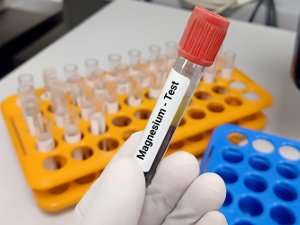 Chronic heart failure is a clinical syndrome that involves, among other things, reduced heart pumping function. The condition is often life-threatening. A new study that is published in Journal of the American Heart Association looks closer at how supplementation with magnesium can help the heart muscle contract with greater force and perhaps be a useful adjuvant in the treatment of heart failure. The study supports another study that is published in Diabetes Care. In this study, it is demonstrated that lack of magnesium is linked to heart failure, atrial fibrillation, and other complications from type 2 diabetes.
Chronic heart failure is a clinical syndrome that involves, among other things, reduced heart pumping function. The condition is often life-threatening. A new study that is published in Journal of the American Heart Association looks closer at how supplementation with magnesium can help the heart muscle contract with greater force and perhaps be a useful adjuvant in the treatment of heart failure. The study supports another study that is published in Diabetes Care. In this study, it is demonstrated that lack of magnesium is linked to heart failure, atrial fibrillation, and other complications from type 2 diabetes.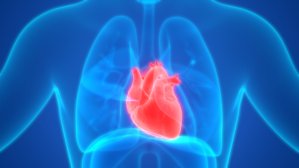 Get lots of sunlight. It is the richest source of vitamin D. Also make sure to take a vitamin D supplement if, for some reason or other, you are unable to get enough sun exposure – and most certainly during the winter period. Studies show that lack of vitamin D may lead to heart failure due to insulin resistance, which is an early stage of diabetes. In other words, having too little vitamin D in your blood may impair the heart’s ability to take up blood sugar and that can cause a morbid enlargement of the cardiac muscle. This was seen in an Indian study that is published in the journal Molecular Nutrition and Food Research. The scientists see vitamin D as having huge potential in the prevention and treatment of cardiac failure plus insulin resistance and diabetes that is spreading like a bushfire.
Get lots of sunlight. It is the richest source of vitamin D. Also make sure to take a vitamin D supplement if, for some reason or other, you are unable to get enough sun exposure – and most certainly during the winter period. Studies show that lack of vitamin D may lead to heart failure due to insulin resistance, which is an early stage of diabetes. In other words, having too little vitamin D in your blood may impair the heart’s ability to take up blood sugar and that can cause a morbid enlargement of the cardiac muscle. This was seen in an Indian study that is published in the journal Molecular Nutrition and Food Research. The scientists see vitamin D as having huge potential in the prevention and treatment of cardiac failure plus insulin resistance and diabetes that is spreading like a bushfire.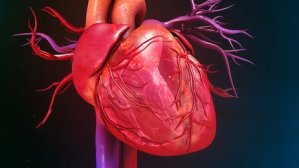 It is essential that your heart is able to pump optimally throughout life. A study from Medical College of Georgia, Augusta University, the United States, has just shown that a diet with low levels of vitamin K1 from dark, leafy greens increases your risk of an unhealthy enlargement of the heart’s left ventricle that pumps the oxygenated blood to the aorta (the body’s largest artery). The scientists even observed this enlargement in teenagers. Vitamin K1 is primarily known for its role in the blood coagulation process, but it is also converted to vitamin K2 in our gut flora. In fact, it is vitamin K2 that is important for the heart and cardiovascular system.
It is essential that your heart is able to pump optimally throughout life. A study from Medical College of Georgia, Augusta University, the United States, has just shown that a diet with low levels of vitamin K1 from dark, leafy greens increases your risk of an unhealthy enlargement of the heart’s left ventricle that pumps the oxygenated blood to the aorta (the body’s largest artery). The scientists even observed this enlargement in teenagers. Vitamin K1 is primarily known for its role in the blood coagulation process, but it is also converted to vitamin K2 in our gut flora. In fact, it is vitamin K2 that is important for the heart and cardiovascular system.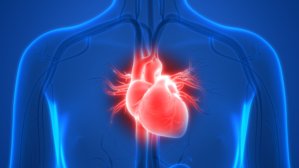 Heart failure is when the heart loses power and is no longer able to deliver blood to the different parts of the body. Typical symptoms are shortness of breath and physical exhaustion. There may also be symptoms like fluid retention, persistent coughing, chest tightness, increased sweating, or cold sensitivity. Chronic heart failure may be caused by different things, and it is a life-threatening condition. However, according to a study that is published in Journal of Clinical Investigation, magnesium supplementation can improve a type of heart failure called diastolic dysfunction. Previous studies have demonstrated that supplements of Q10 can also improve cardiac function in patients with heart failure.
Heart failure is when the heart loses power and is no longer able to deliver blood to the different parts of the body. Typical symptoms are shortness of breath and physical exhaustion. There may also be symptoms like fluid retention, persistent coughing, chest tightness, increased sweating, or cold sensitivity. Chronic heart failure may be caused by different things, and it is a life-threatening condition. However, according to a study that is published in Journal of Clinical Investigation, magnesium supplementation can improve a type of heart failure called diastolic dysfunction. Previous studies have demonstrated that supplements of Q10 can also improve cardiac function in patients with heart failure.
 No matter how you twist and turn it, cholesterol is an essential substance, and we humans produce most of it ourselves. What is important is to make sure that the cholesterol we have in our blood does not oxidize, and that is something which Q10 and other antioxidants take care of. Stable blood sugar levels also help us maintain a healthy cholesterol balance.
No matter how you twist and turn it, cholesterol is an essential substance, and we humans produce most of it ourselves. What is important is to make sure that the cholesterol we have in our blood does not oxidize, and that is something which Q10 and other antioxidants take care of. Stable blood sugar levels also help us maintain a healthy cholesterol balance.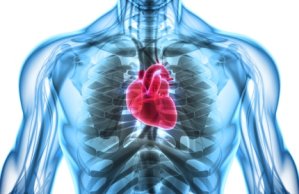 Q10 and selenium are powerful antioxidants that are important for the heart, cardiovascular system, and the energy turnover. As we grow older, our endogenous Q10 synthesis decreases, and many people lack selenium. A Swedish study has shown that older people who take supplements of Q10 and selenium have a 50 percent lower cardiovascular death rate. Another (more recent) Swedish study shows that Q10 and selenium also increase elderly peoples’ levels of IGF-1, a hormone with many functions in the body. The scientists assume that this helps reduce the risk of cardiac death among elderly people.
Q10 and selenium are powerful antioxidants that are important for the heart, cardiovascular system, and the energy turnover. As we grow older, our endogenous Q10 synthesis decreases, and many people lack selenium. A Swedish study has shown that older people who take supplements of Q10 and selenium have a 50 percent lower cardiovascular death rate. Another (more recent) Swedish study shows that Q10 and selenium also increase elderly peoples’ levels of IGF-1, a hormone with many functions in the body. The scientists assume that this helps reduce the risk of cardiac death among elderly people.
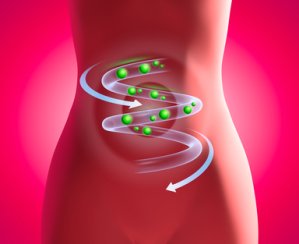 ms of coenzyme Q10 in the body - ubiquinone and ubiquinol - only one of them is able to document an effect. This was recently ascertained by one of the leading Q10 researchers in the world.
ms of coenzyme Q10 in the body - ubiquinone and ubiquinol - only one of them is able to document an effect. This was recently ascertained by one of the leading Q10 researchers in the world.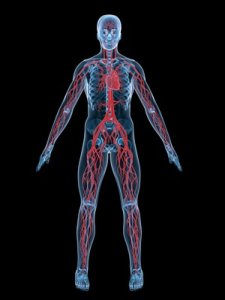 Lack of vitamin K2 increases your risk of stiff arteries and atherosclerosis, which is the leading cause of death worldwide. This was observed in two new studies, one that is published in the American Journal of Hypertension, the other in the journal Nephron. A third study that is published in Clinical Nutrition reveals that daily supplementation with vitamin K2 lowers the risk of early death caused by cardiovascular disease. Our diet used to provide substantially more vitamin K2 from fermented foods than now, and this type of food deserves a comeback. It is also important to know the difference between vitamin K1 and vitamin K2.
Lack of vitamin K2 increases your risk of stiff arteries and atherosclerosis, which is the leading cause of death worldwide. This was observed in two new studies, one that is published in the American Journal of Hypertension, the other in the journal Nephron. A third study that is published in Clinical Nutrition reveals that daily supplementation with vitamin K2 lowers the risk of early death caused by cardiovascular disease. Our diet used to provide substantially more vitamin K2 from fermented foods than now, and this type of food deserves a comeback. It is also important to know the difference between vitamin K1 and vitamin K2.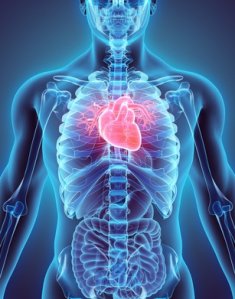 Zinc is a trace element that is necessary for around 300 enzymes that control the thyroid gland, fertility, the nervous system, the immune system, and a number of other functions. A team of scientists from the Technical University of Munich (TUM) has found a close link between the body’s zinc status and cardiac function. Although clinical zinc deficiencies are rare, short-term subclinical zinc deficiencies are more widespread than previously thought. Even a minor zinc deficiency may affect cardiac health and the countless enzyme processes that depend on the presence of zinc. Besides, zinc is a powerful antioxidant that protects cells against oxidative stress. There are many reasons why it is important to get enough of this nutrient.
Zinc is a trace element that is necessary for around 300 enzymes that control the thyroid gland, fertility, the nervous system, the immune system, and a number of other functions. A team of scientists from the Technical University of Munich (TUM) has found a close link between the body’s zinc status and cardiac function. Although clinical zinc deficiencies are rare, short-term subclinical zinc deficiencies are more widespread than previously thought. Even a minor zinc deficiency may affect cardiac health and the countless enzyme processes that depend on the presence of zinc. Besides, zinc is a powerful antioxidant that protects cells against oxidative stress. There are many reasons why it is important to get enough of this nutrient. "After about one week of taking the Q10 supplement I could feel a huge difference," says 23-year old Alan Piccini, who has been suffering from extreme fatigue and muscle aches ever since he was a child.
"After about one week of taking the Q10 supplement I could feel a huge difference," says 23-year old Alan Piccini, who has been suffering from extreme fatigue and muscle aches ever since he was a child. “Taking capsules with co-enzyme Q10 has freed me of the severe side effects of my cholesterol lowering medicine,” Mrs Franken explains.
“Taking capsules with co-enzyme Q10 has freed me of the severe side effects of my cholesterol lowering medicine,” Mrs Franken explains.